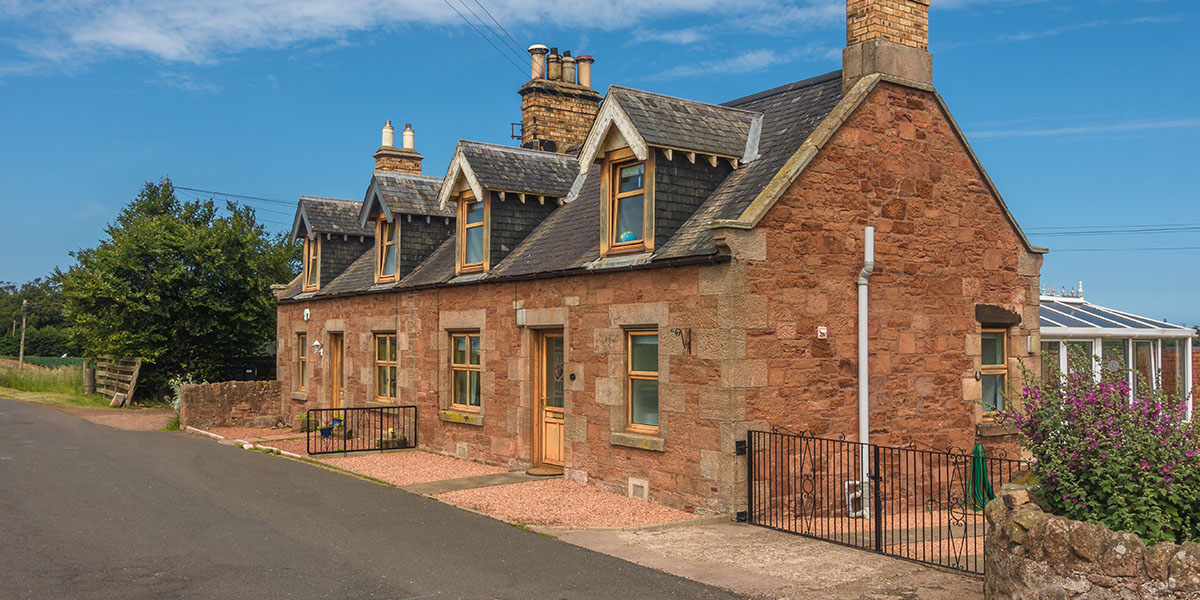Selling an inherited property in Scotland: What you need to know

Key Takeaways
- You must secure Confirmation (Scotland’s version of probate) before legally managing or selling inherited property
- Timelines vary by region and case complexity,expect anywhere from 4 weeks to several months for legal processing.
- An inherited home sale may be subject to Capital Gains Tax or other financial implications, so early tax guidance is essential.
- You'll need a Home Report, experienced solicitor estate agent, and appropriate preparations before marketing the home.
- ESPC solicitor estate agents offer the advantage of legal and estate marketing expertise under one roof, making the process smoother and more efficient.
Inheriting a property can stir up all sorts of emotions. For some, it’s a welcome windfall; for others, it’s a bittersweet reminder of a loved one. Whatever your circumstances, if you’ve recently inherited a property in Scotland and are thinking about selling, there are a few important steps and legal details to be aware of. Here’s a straightforward guide to help you navigate the process.
The inheritance process in Scotland
In Scotland, when someone passes away, their estate - including any property they own - is managed through a legal process called Confirmation (similar to probate elsewhere in the UK). If there’s a Will, it’ll usually name an executor to deal with the estate. If there’s no Will, the court appoints an executor dative.
Before you can sell an inherited property, you’ll need to apply for Confirmation. This grants the executor legal authority to access the deceased’s assets, pay off debts, and distribute the estate, including transferring or selling any property.
It is worth mentioning that, in the case of jointly owned properties, the representatives of any joint owner, who has passed away, should always consult with a solicitor. This will enable the solicitor to check the title deeds and advise what, if anything, needs to be done, in relation to the deceased’s share of the property.
The time it takes to get Confirmation can vary. For example, if you live in Fife or some areas of the Scottish Borders, your application can go through in around 4-6 weeks, but Confirmation applications in Edinburgh typically take 3 months at a minimum, and sometimes much longer. More complex estates or situations where there’s no Will can take several months. It’s worth speaking to a solicitor experienced in Scottish inheritance law to guide you through this part.
Do you pay tax on inherited property?
One of the most common questions people ask is whether they’ll be hit with a hefty tax bill when they inherit a home.
This aspect of the process can differ vastly depending on many factors, so our advice would be to engage a tax specialist who deals with estates and properties at the earliest opportunity.
It’s also a good idea to get a professional property valuation as soon as possible after inheritance for tax purposes and to help set expectations for the eventual sale.
The process of selling an inherited property
Once you’ve obtained confirmation, you can move forward with selling. The process is broadly similar to selling any property in Scotland, with a few extra points to consider:
- Instruct a solicitor: You’ll need a solicitor to handle the legal aspects of the sale, from preparing the title deeds to managing offers and concluding the missives.
- Get a Home Report: Just like any property sale in Scotland, you’ll need a Home Report before marketing the property. This includes a property survey, an energy report, and a property questionnaire.
- Choose an estate agent: A solicitor estate agent experienced with inherited properties can offer helpful advice, especially if the home’s been empty for a while or needs modernisation.
- Prepare the property: It might need a bit of TLC before hitting the market. Clearing personal belongings, tidying the garden, and perhaps giving it a fresh coat of paint can make a big difference to buyers.
- Market the property and accept an offer: Your solicitor estate agent will handle any formal offers and negotiate the missives on your behalf.
- Complete the sale: Once the legal work’s done, the property changes hands on the agreed date of entry, and the funds from the sale are transferred to the executor or estate beneficiaries, depending on the circumstances.
Final thoughts
Selling an inherited property in Scotland can feel like a daunting task at an already difficult time, but you don’t have to tackle it alone. A good solicitor estate agent can help ease the process, making sure everything’s handled properly and you’re aware of any tax considerations.
If you’re navigating this situation just now, ESPC is here to help. From expert property valuations to trusted local solicitor estate agents, we’ve got the experience and connections to make things a little easier.